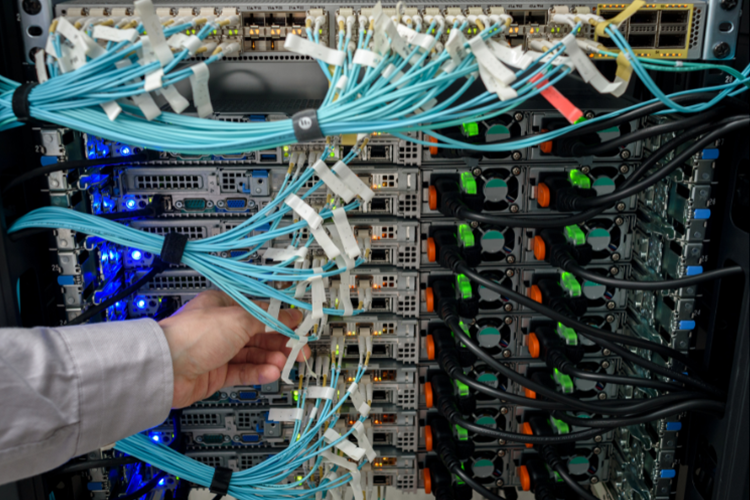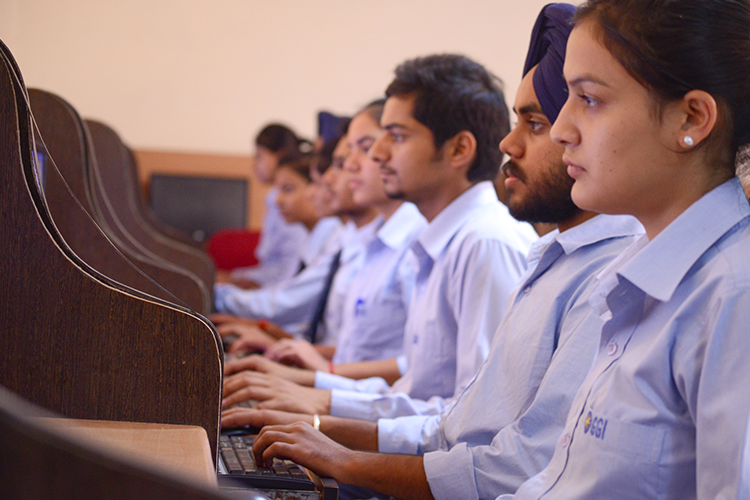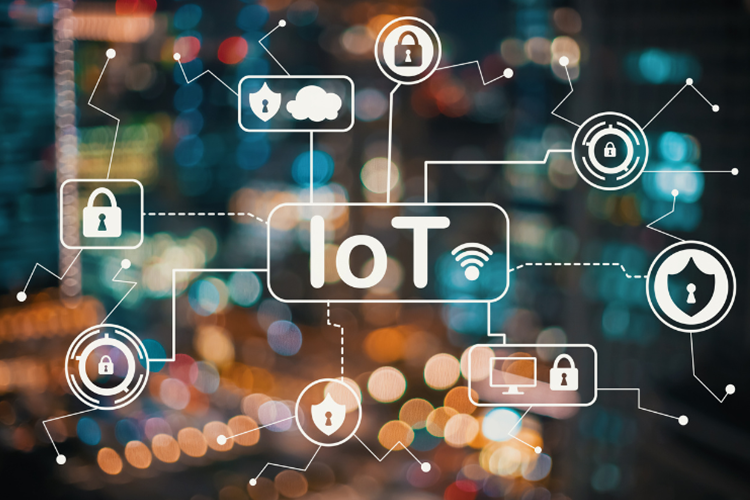Course Structure
The B.Tech Computer Science & Engineering(IOT, Cyber Security & Blockchain) program at Gulzar Group of Institutions offers a comprehensive curriculum spanning eight semesters.
Engineering Mathematics is a foundational course that provides students with essential mathematical concepts and techniques relevant to engineering applications. Topics covered include calculus, differential equations, linear algebra, and more.
Provides foundational knowledge in programming, algorithms, data structures, computer architecture, and software engineering, preparing students for advanced studies and professional careers in computer science and engineering.
Introduces the principles of object-oriented programming, including classes, objects, inheritance, polymorphism, and encapsulation, enabling students to design and develop modular, reusable, and maintainable software.
Electrodynamics and Optics covers electromagnetism principles, Maxwell’s equations, electromagnetic waves, and optics phenomena like reflection, refraction, and diffraction, crucial for understanding light and electromagnetic wave behaviour in engineering and physics.
Optimization Techniques encompasses methods to maximise or minimise functions under constraints. It involves algorithms like gradient descent, linear programming, and evolutionary strategies applied in engineering, economics, and operations research for efficient problem-solving.
Data Structures refers to the organisation, management, and storage of data for efficient access and modification. It includes arrays, linked lists, stacks, queues, trees, graphs, and hash tables, crucial for designing efficient algorithms and software applications.
Digital Logic Design focuses on designing and implementing digital circuits using logic gates, covering Boolean algebra, combinational and sequential logic, flip-flops, registers, and memory units for digital system development.
Discrete Structures deals with mathematical structures that are fundamentally discrete rather than continuous. Topics include set theory, logic, relations, functions, graphs, and combinatorics, essential for algorithm development and computer science applications.
Fundamentals of Electronics introduces basic concepts and components in electronic circuits, covering semiconductors, diodes, transistors, amplifiers, oscillators, and digital circuits essential for applications in communication and control systems.
Explore fundamental concepts of digital systems, including number systems, Boolean algebra, combinational and sequential circuits. Understand how digital logic designs power modern computing devices and systems.
Learn essential algorithms and data structures like arrays, linked lists, stacks, queues, trees, and graphs. Understand algorithm efficiency, recursion, sorting, and searching techniques for optimising problem-solving in programming.
Master the principles of object-oriented programming, including classes, inheritance, polymorphism, and encapsulation. Develop problem-solving skills through hands-on coding in languages like C++ or Java, creating modular, reusable software components.
Delve into probability theory, statistical inference, and data analysis techniques. Study probability distributions, sampling, hypothesis testing, regression, and more, crucial for data science, machine learning, and engineering problem-solving.
Examine key human values, societal evolution, and philosophical thought. Gain insights into how societies develop, ethical reasoning, and the importance of sustainability and social responsibility in modern world challenges.
Practical experiments to design and test digital circuits, including logic gates, multiplexers, and flip-flops. Hands-on learning to reinforce theoretical knowledge of digital electronics through real-world applications and simulations.
Apply theoretical knowledge of data structures and algorithms through programming exercises. Implement and test structures like trees, stacks, and algorithms like sorting and searching in real-world programming scenarios.
Develop software applications in a lab environment using object-oriented principles. Practice coding projects that incorporate inheritance, polymorphism, and encapsulation, reinforcing programming concepts through hands-on application.
Get acquainted with essential IT tools and technologies, including hardware and software installations, basic programming, and networking fundamentals. A foundation for practical computing skills needed in various technical domains.
Participate in hands-on training sessions at reputed institutions or industries, applying theoretical concepts in real-world environments. Gain exposure to industry practices, project development, and essential technical and professional skills.
Study mathematical structures fundamental to computer science, including logic, set theory, graph theory, and combinatorics. Develop problem-solving skills essential for algorithms, data structures, cryptography, and network analysis.
Explore the inner workings of computer systems, including CPU design, memory hierarchy, and instruction set architecture. Understand how hardware components interact to execute programs efficiently.
Learn the principles of operating systems, focusing on process management, memory allocation, file systems, and security. Explore how OS serves as a bridge between hardware and user applications.
Study algorithm design techniques like divide-and-conquer, dynamic programming, and greedy methods. Analyse time and space complexity, focusing on optimising performance for problem-solving across various computational tasks.
Engage in discussions on ethics, empathy, and human values to foster personal development. Understand the role of compassion and social responsibility in building a sustainable, harmonious society.
Explore environmental issues, including ecosystems, biodiversity, pollution, and climate change. Understand the importance of conservation and sustainability in protecting our planet for future generations.
Hands-on lab focusing on building and simulating computer architecture components. Reinforce theoretical understanding by experimenting with CPU design, memory units, and data paths in real-world systems.
Apply OS concepts in a lab environment through tasks like process scheduling, memory management, and file handling. Practical exercises enhance understanding of OS functionality and performance.
Study the mathematical foundations of data transmission and compression. Learn about entropy, data encoding, error detection, and correction methods to improve the efficiency and reliability of communication systems.
Explore the design, development, and management of databases. Learn SQL, database architecture, normalisation, and transaction management to efficiently store, retrieve, and manipulate data in various applications.
Understand the mathematical foundations of computer science, including grammars, automata, and formal languages. Learn how machines process languages and solve computational problems through different automata models.
Study the network of connected devices that communicate and share data. Explore sensors, embedded systems, and IoT protocols to develop solutions for smart environments like homes, cities, and healthcare.
Learn about the design and operation of computer networks, focusing on protocols, network architecture, and security. Understand how data is transferred across local and global networks.
Dive deeper into a specialised subject area chosen from a range of elective topics. Enhance knowledge in emerging fields of interest relevant to computer science and engineering.
Study the Indian Constitution’s principles, rights, and duties. Explore the essence of traditional Indian knowledge, emphasising cultural heritage, philosophy, and values that shape the country’s modern legal and social framework.
Gain hands-on experience in creating, managing, and querying databases using SQL and other tools. Work on real-world projects that demonstrate how databases are used to manage information.
Practical exposure to IoT technology through hands-on projects involving sensors, microcontrollers, and cloud services. Develop IoT solutions for applications in smart systems and connected environments.
Implement networking concepts through practical tasks like setting up networks, configuring routers, and testing protocols. Gain real-world experience in managing and troubleshooting network issues.
Apply concepts from the chosen elective in a practical setting. Work on projects or experiments that deepen your understanding of the specialised subject area.
Explore techniques for securing networks and data through encryption, authentication, and security protocols. Learn to protect information from unauthorised access, cyber threats, and vulnerabilities.
Learn the process of investigating cybercrimes by collecting, preserving, and analysing digital evidence. Understand forensic tools and techniques used in solving crimes related to computers, networks, and digital devices.
Specialise in an advanced subject of your choice from various elective options. Enhance your expertise in an area of interest aligned with emerging technologies or industry needs.
Choose another elective to deepen your knowledge in a specific domain. This allows further specialisation in cutting-edge areas relevant to current and future technological advancements.
Select a subject from outside your core discipline, broadening your perspective and fostering interdisciplinary learning. Gain insight into a diverse range of topics applicable to real-world challenges.
Work on a guided project that applies theoretical knowledge to practical problems. Develop a solution, complete with research, design, and implementation, showcasing your skills and innovation.
Apply cryptography techniques and security measures in a practical environment. Perform hands-on tasks like setting up firewalls, encryption systems, and secure communication channels.
Gain practical experience in recovering, analysing, and preserving digital evidence. Work on cases simulating real-world cybercrime investigations to strengthen your forensic skills.
Implement the practical aspects of your chosen elective. Work on projects, experiments, or simulations to apply theoretical concepts in a real-world context.
Practical application of your third elective, focusing on hands-on tasks, experiments, or projects that demonstrate advanced understanding in your selected subject.
Study the process of converting high-level programming languages into machine code. Learn lexical analysis, parsing, syntax checking, and optimization techniques used in creating compilers for various languages.
Explore decentralised ledger technologies, including blockchain principles, smart contracts, and cryptocurrency fundamentals like Bitcoin and Ethereum. Understand how blockchain ensures secure, transparent, and tamper-proof transactions.
Choose an elective from outside your major to diversify your academic exposure. Enhance your understanding of interdisciplinary topics that connect with broader industry or societal applications.
Select an advanced elective subject to deepen your technical or research skills. Specialise in emerging fields that align with current technological trends and industry demands.
Opt for another advanced elective, allowing further specialisation and in-depth study in your chosen field of interest, preparing you for a niche area in the tech industry.
Practice designing and implementing a basic compiler by applying compiler design principles. Experience hands-on work with lexical analysis, parsing techniques, and code generation tasks.
Get practical experience with blockchain development. Work on real-world applications, create smart contracts, and explore secure transactions using cryptocurrency in a lab setting.
Work on a comprehensive project showcasing your expertise. Develop an innovative solution or application by integrating theoretical and practical skills from your coursework.
Apply your elective’s theoretical concepts through experiments, projects, or simulations. Gain hands-on experience and a deeper understanding of your chosen specialisation.
Practical work on your elective subject to implement advanced techniques or technologies. This hands-on experience solidifies your knowledge and prepares you for industry challenges.
Engage in practical, industry-oriented training to apply classroom knowledge in real-world settings. Gain hands-on experience, enhance your technical skills, and prepare for professional challenges in your field.



































